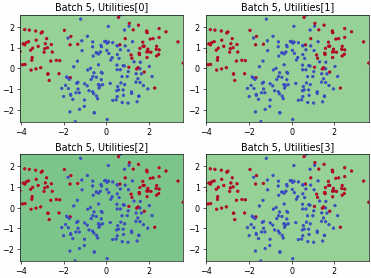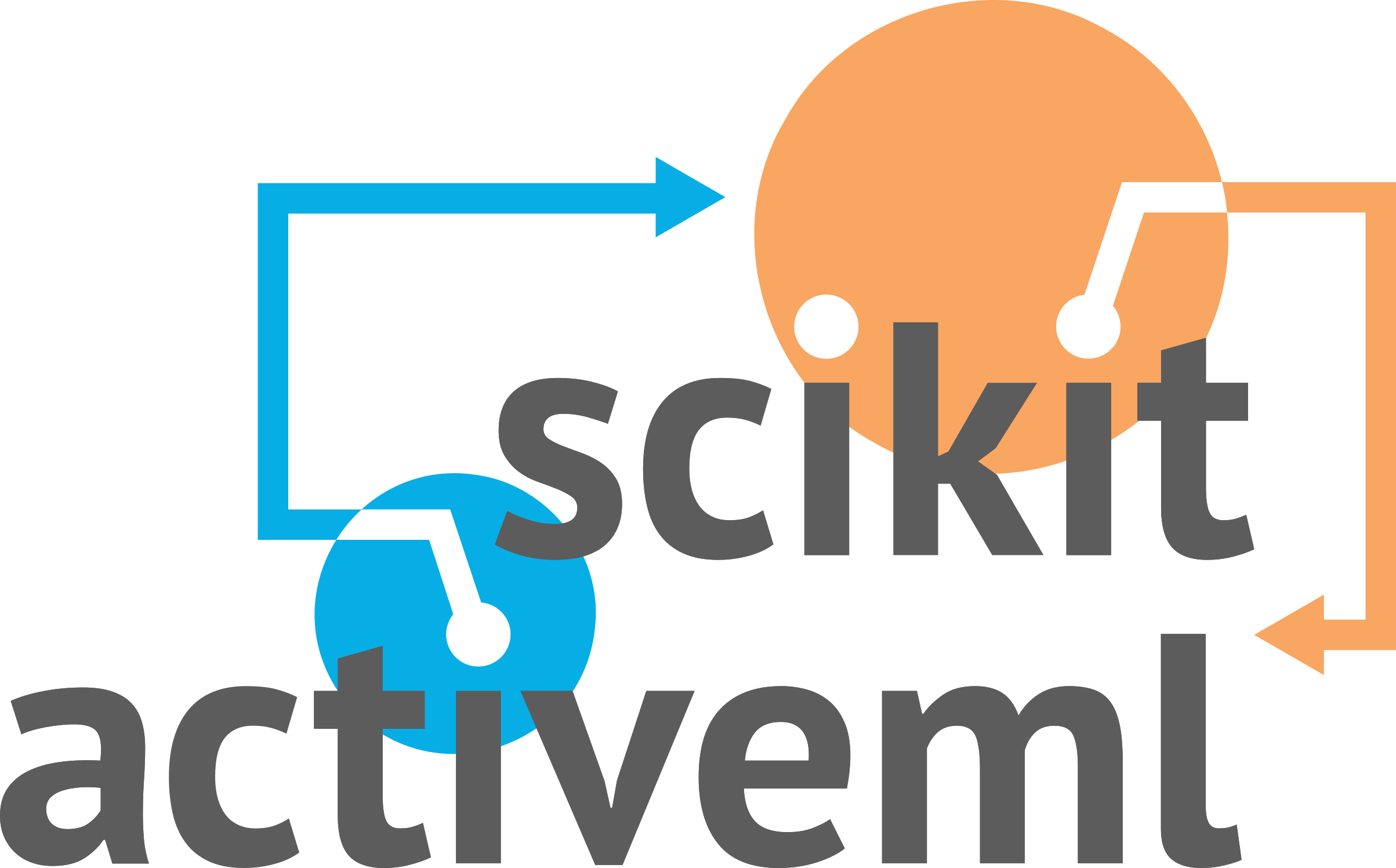Falcun#
- class skactiveml.pool.Falcun(gamma=10, missing_label=nan, random_state=None)[source]#
Bases:
SingleAnnotatorPoolQueryStrategyFast Active Learning by Contrastive UNcertainty (FALCUN)
This class implements the “Fast Active Learning by Contrastive UNcertainty” (FALCUN) query strategy [1], which selects a batch directly in probability space using a self-adjusting mix of uncertainty and diversity. By operating only on low-dimensional softmax outputs rather than deep embeddings, it achieves fast acquisitions while retaining strong label efficiency.
- Parameters:
- gammafloat > 0, default=10
Controls the randomness in the selection. A value of 0 corresponds to random sampling, while a value going to infinity corresponds to selecting the sample with the highest utility (relevance).
- missing_labelscalar or string or np.nan or None, default=np.nan
Value to represent a missing label.
- random_stateNone or int or np.random.RandomState, default=None
The random state to use.
References
[1]S. Gilhuber, A. Beer, Y. Ma, and T. Seidl. FALCUN: A Simple and Efficient Deep Active Learning Strategy. In Joint Eur. Conf. Mach. Learn. Knowl. Discov. Databases, pages 421–439, 2024.
Methods
Get metadata routing of this object.
get_params([deep])Get parameters for this estimator.
query(X, y, clf[, fit_clf, sample_weight, ...])Query the next samples to be labeled.
set_params(**params)Set the parameters of this estimator.
- get_metadata_routing()#
Get metadata routing of this object.
Please check User Guide on how the routing mechanism works.
- Returns:
- routingMetadataRequest
A
MetadataRequestencapsulating routing information.
- get_params(deep=True)#
Get parameters for this estimator.
- Parameters:
- deepbool, default=True
If True, will return the parameters for this estimator and contained subobjects that are estimators.
- Returns:
- paramsdict
Parameter names mapped to their values.
- query(X, y, clf, fit_clf=True, sample_weight=None, candidates=None, batch_size=1, return_utilities=False)[source]#
Query the next samples to be labeled.
- Xarray-like of shape (n_samples, n_features)
Training data set, usually complete, i.e., including the labeled and unlabeled samples.
- yarray-like of shape (n_samples,)
Labels of the training data set (possibly including unlabeled ones indicated by self.missing_label.)
- clfskactiveml.base.SkactivemlClassifier
Classifier implementing the methods fit and predict_proba.
- fit_clfbool, default=True
Defines whether the classifier clf should be fitted on X, y, and sample_weight.
- sample_weight: array-like of shape (n_samples,), default=None
Weights of training samples in X.
- candidatesNone or array-like of shape (n_candidates), dtype=int or array-like of shape (n_candidates, n_features), default=None
If candidates is None, the unlabeled samples from (X,y) are considered as candidates.
If candidates is of shape (n_candidates,) and of type int, candidates is considered as the indices of the samples in (X,y).
If candidates is of shape (n_candidates, …), the candidate samples are directly given in candidates (not necessarily contained in X).
- batch_sizeint, default=1
The number of samples to be selected in one AL cycle.
- return_utilitiesbool, default=False
If true, also return the utilities based on the query strategy.
- Returns:
- query_indicesnumpy.ndarray of shape (batch_size)
The query indices indicate for which candidate sample a label is to be queried, e.g., query_indices[0] indicates the first selected sample.
If candidates is None or of shape (n_candidates,), the indexing refers to the samples in X.
If candidates is of shape (n_candidates, n_features), the indexing refers to the samples in candidates.
- utilitiesnumpy.ndarray of shape (batch_size, n_samples)
The utilities of samples after each selected sample of the batch, e.g., utilities[0] indicates the utilities used for selecting the first sample (with index query_indices[0]) of the batch. Utilities for labeled samples will be set to np.nan.
If candidates is None, the indexing refers to the samples in X.
If candidates is of shape (n_candidates,) and of type int, utilities refers to the samples in X.
If candidates is of shape (n_candidates, …), utilities refers to the indexing in candidates.
- set_params(**params)#
Set the parameters of this estimator.
The method works on simple estimators as well as on nested objects (such as
Pipeline). The latter have parameters of the form<component>__<parameter>so that it’s possible to update each component of a nested object.- Parameters:
- **paramsdict
Estimator parameters.
- Returns:
- selfestimator instance
Estimator instance.
Examples using skactiveml.pool.Falcun#

Fast Active Learning by Contrastive UNcertainty (FALCUN)
